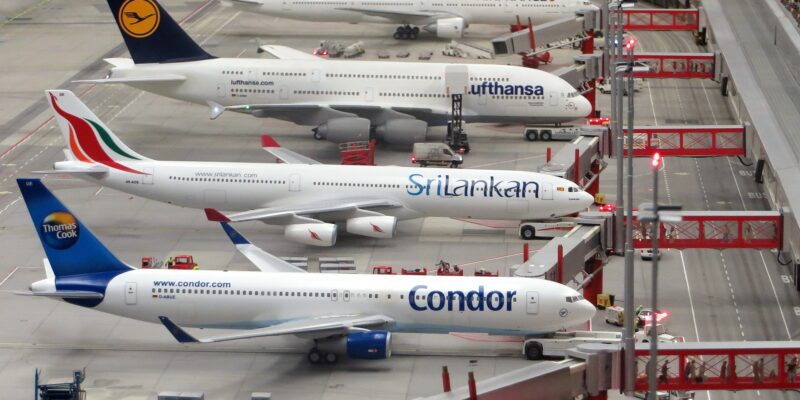
Do you have a love-hate relationship with airlines? Do you hate the high change and cancelation fees they charge and still fly with them? We do, too. In this article, you’ll learn how to avoid these fees whenever possible so your wallet does not take a hit.
When an airline changes or cancels a flight due to weather, crew, maintenance or other reasons, you as a passenger are rarely offered compensation. However, if you have to change or cancel your own reservations, you may incur hefty fees. While most airlines did not charge change/cancelation fees during the pandemic, this will likely change soon as vaccination rates increase and travel demand picks up.
Fortunately, there are some tricks to minimize or avoid these fees altogether on paid flights, especially if you had travel planned during the current pandemic.
Be on the lookout for flight schedule changes
Airlines have an incentive to issue travel waivers during times when they anticipate a large number of cancelations or delays. In the event of bad weather, natural disasters or, more recently, virus outbreaks, many airlines adjust their operations, and they’d rather offer travelers flexibility in advance than try to accommodate you at the airport.
They may also waive rebooking fees.
So be on the lookout for schedule changes and check with your airline to see what they offer during a pandemic or other extreme circumstances. You might be pleasantly surprised if you have some wiggle room!
The downside is that you’ll only have a coach class seat, with no entitlement to early boarding, priority check-in, upgrades or free checked baggage upon landing. And there’s always the risk that you’ll be bumped from your flight if it fills up before the day of departure. But at least you will not be hit with sudden fee surprises later – which brings us to our next tip…
Remember the 24-hour rule
Airlines are required by law to offer free rebookings or refunds within 24 hours of booking, provided the flight is more than seven days in the future. This means you can ask for a free refund or hold on your booking without facing a penalty until the next day.
So if you have to change or cancel your flight in an emergency situation, make sure you give yourself at least 24 hours after booking and choose one of these two options before coming up with anything else! And speaking of emergencies… It may be time to think outside the box in other ways as well…
Consider booking single flights instead of round-trip flights
Most airlines charge the same total price for a round-trip ticket and two one-way tickets booked together. However, the impact on rebooking fees can be drastically different.
Some airlines will refund the first ticket without penalty for a cancelation, while others will charge a fee or require that the second booking cost at least $250 more than the first. For one-way tickets, there are no fees if you cancel either ticket independently.
You’ll also save on baggage and change fees if it turns out it’s better to book just one return flight instead of two! You may only need to purchase emergency travel insurance in this case, which will cover the cost of both flights if they are canceled within 24 hours of booking or before the day of departure (see our article on purchasing cheap travel insurance here).
Have a good reason
In the event of illness, death in the family, or other extraordinary circumstances such as a natural disaster, travelers may be exempt from fees. It’s important to have all relevant receipts ready when you make this request, as most airlines require proof.
Consider the coverage of your credit card
If you have a travel rewards or airline credit card, the trip cancelation and interruption insurance it includes will help you avoid fees if you need to cancel your booking. Frequent flyers are used to airlines canceling or changing flights. For overburdened travelers, these changes can be just the thing – but it’s always good to know when you are covered in case the bills throw you off track. For example, if you need to cancel or change your trip for a covered reason (such as jury duty or serious illness) and you booked with Chase Sapphire Reserve, you are eligible for reimbursement of up to $10,000 per trip.
Earn elite status
One of the most coveted benefits of airline elite status is that some tiers waive rebooking and return fees on award tickets. Some – notably Jet Blue and Alaska – even offer this fee waiver on paid tickets.
There are a number of ways to earn elite status, including the following:
- Fly 25 segments in a calendar year on Alaska Airlines Elite 25K or higher.
- Earn 75,000 qualifying miles on any of American Airlines’ partner airlines (American Airlines often has lower fares than its competitors)
- Earn 50,000 qualifying tier points
We could list more, but if you are a frequent flyer and want to take advantage of travel protection and lower fees, elite status is a must.
Bottom Line
Changing or canceling a flight can be stressful even for good reasons, but it’s especially difficult when you are flying on vacation with your family. To make matters worse, it can result in high change or cancelation fees. So it’s always good to know what options you have to avoid these fees.












